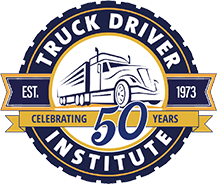How to Decide What Type of Freight Is Best for You
If you’re looking to start a new career in the trucking industry, you may be wondering what type of freight is best for you. Truck freight is responsible for over 70% of all transported cargo in America. Companies use trucks to ship a variety of freight that ranges in size, value, and content. The dedicated men and women of the trucking industry move freight from one end of the country to the other. Read on to learn more about the different types of freight and the types of trucks that move that freight so that you can decide what type of freight is best for you.

Different Types of Truck Freight
There are many different types of truck freight and each kind has a unique role in moving cargo across the country. To those who are less versed in the shipping and transportation industry, these different shipping modes may seem very confusing. However, there are a few core methods for moving freight. Here is an overview of the most common types of freight and shipping modes:
Less Than Truckload (LTL)
This is one of the most widely used methods of shipping freight. Less than truckload or less than load (LTL) takes an economical approach to shipping, in that it transports a number of smaller items that range in weight from 100 to 20,000 pounds yet do not fill up an entire truck. In this way, LTL cargo is shipped in the same truck with other LTL freight in order to save time and money. Freight may make multiple stops before it reaches its destination, but by combining shipments, it can be a speedy, economical process.
Volume LTL
Volume LTL freight is incredibly similar to LTL in that it is a smaller amount of cargo that is not a full truckload. The major difference between the two is that once the shipment exceeds certain specifications for weight and volume, it’s referred to as Volume LTL, as it takes up more space on a trailer and incurs more shipping charges.
Truckload
When freight is shipped by the truckload, all available space in a trailer is utilized to move one shipment. Truckload shipping also works for cargo that requires more space or specific shipping conditions. It’s also an excellent option making deliveries faster because freight does not have to be transferred from one trailer to another.
Intermodal
Freight is sometimes moved via multiple forms of transportation, not just trucks. Intermodal freight moves that cargo via shipping containers by train, ship, and truck to its final destination. These shipping containers are a standard size and ensure that the cargo does not have to be directly handled, and moving the entire container is more cost effective than moving freight from truck to ship. Moving freight with these intermodal shipping containers can be inexpensive and better for the environment.
Expedited
Expedited freight is the best choice for moving time-sensitive cargo. This type of freight makes no stops until its destination is reached, which is why it is typically used by supply chains who work with critical shipments.
Blanket Wrap or Van Move
Not all freight can be crated, boxed, or easily put on a pallet. In these instances, freight is moved via blanket wrap or van move services. This method is typically reserved for items that cannot be repackaged and must be handled with care. This type of transport requires a little more planning than a typical LTL shipment, and therefore takes a little longer to move the goods from one location to another.
Different Types of Trucks that Move Freight
Freight is transported in different quantities and by different types of truck, each with its own specialized purpose. If you’re looking to drive a specific type of truck, read on to learn what type of freight is best for you.
Flatbed Trucks
These types of freight trucks have a flatbed, as the name implies, and no sides or top. This makes it easier to load and unload large freight that wouldn’t fit in a standard, enclosed 53’ trailer. Generally, flatbed trucks are used to move construction goods, large manufactured products, and other oversized loads that are secured with tarps and straps.
When flatbeds are used for hauling oversized cargo, they must use red flags and lights to identify this type of truck freight on the road.
Step Deck Trucks
Step deck trucks are similar to flatbeds in that they have a large, open surface for transporting freight. The main difference is that the surface on a step deck truck is lower and closer to the ground. These trucks are ideal for safely hauling cargo that is taller and would otherwise be unable to avoid hazards like bridge clearances.
Refrigerated Trucks
In the trucking business, these trucks are sometimes known as “reefer trucks” and are specially designed freight trucks with a temperature-controlled trailer. These trucks will typically move freight that must remain in a certain temperature zone like perishables, pharmaceuticals, and potentially hazardous materials.
Dry Vans
When you think of a standard 53-foot trailer attached to a semi-truck, you’re likely thinking of a dry van, as they are the most common truck freight. They are frequently used to haul goods across the country and are used by a variety of companies to ship anything from consumer products and electronics to other products that don’t need to be kept at a certain temperature. Drivers who choose to move truck freight with a dry van may find that their opportunities may increase due to the sheer volume of product that is moved by dry vans every day.
TDI Can Prepare You to Haul Any Kind of Freight
No matter if you’re moving construction equipment on flatbed trucks or warehouse shipments in dry vans, the instructors at Truck Driver Institute will help you earn your Commercial Driver’s License in as little as three weeks. You’ll be prepared to haul any kind of freight, and will be able to decide what type of freight is best for you. We also provide competitive tuition rates and consistent job placement.
Ready to hit the road and learn what type of freight is best for you? Find the right Truck Driver Institute training location or contact us today!
Get Started
Get your Class A CDL in our friendly, supportive CDL training program. TRAIN with experienced instructors – multiple good-paying, secure job choices with benefits available for eligible graduates. EARN $700 – $1000+ / week to start as a truck driver. Get started today by filling out the form below. We look forward to hearing from you!



